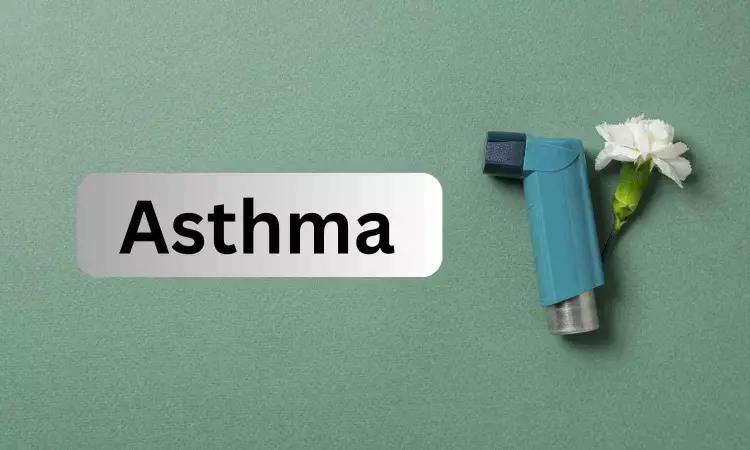- Home
- Medical news & Guidelines
- Anesthesiology
- Cardiology and CTVS
- Critical Care
- Dentistry
- Dermatology
- Diabetes and Endocrinology
- ENT
- Gastroenterology
- Medicine
- Nephrology
- Neurology
- Obstretics-Gynaecology
- Oncology
- Ophthalmology
- Orthopaedics
- Pediatrics-Neonatology
- Psychiatry
- Pulmonology
- Radiology
- Surgery
- Urology
- Laboratory Medicine
- Diet
- Nursing
- Paramedical
- Physiotherapy
- Health news
- Fact Check
- Bone Health Fact Check
- Brain Health Fact Check
- Cancer Related Fact Check
- Child Care Fact Check
- Dental and oral health fact check
- Diabetes and metabolic health fact check
- Diet and Nutrition Fact Check
- Eye and ENT Care Fact Check
- Fitness fact check
- Gut health fact check
- Heart health fact check
- Kidney health fact check
- Medical education fact check
- Men's health fact check
- Respiratory fact check
- Skin and hair care fact check
- Vaccine and Immunization fact check
- Women's health fact check
- AYUSH
- State News
- Andaman and Nicobar Islands
- Andhra Pradesh
- Arunachal Pradesh
- Assam
- Bihar
- Chandigarh
- Chattisgarh
- Dadra and Nagar Haveli
- Daman and Diu
- Delhi
- Goa
- Gujarat
- Haryana
- Himachal Pradesh
- Jammu & Kashmir
- Jharkhand
- Karnataka
- Kerala
- Ladakh
- Lakshadweep
- Madhya Pradesh
- Maharashtra
- Manipur
- Meghalaya
- Mizoram
- Nagaland
- Odisha
- Puducherry
- Punjab
- Rajasthan
- Sikkim
- Tamil Nadu
- Telangana
- Tripura
- Uttar Pradesh
- Uttrakhand
- West Bengal
- Medical Education
- Industry
Early life exposure to weed pollen could increase childhood asthma risk: study

A study published in the European Respiratory Journal has found children who are exposed to tree and weed pollen in urban environments are at increased risk of respiratory health problems, including asthma. While green areas in urban settings decrease exposure to air pollution, allow kids to be active, and offer positive contact to a diverse microbiota - which in turn may help the positive development of a child’s immune system - they can also lead to the development of childhood asthma. Thankfully, trees can help mitigate this effect to some degree, thanks to their canopy.
“We found that tree canopy offers some protective effects towards the development of asthma in children. However, this protective effect goes away when there is increased exposure to weed pollen,” says lead author Éric Lavigne, an Adjunct Professor in the School of Epidemiology and Public Health in the Faculty of Medicine at the University of Ottawa.
Researchers tapped into the Ontario ASTHMA cohort database, analyzing data over an eight-year period to identify cases of childhood asthma between birth and the age of six. Just over 13 percent of the 214,000 mother-child pairs included in the study were diagnosed with childhood asthma. Researchers measured environmental exposure with the normalized difference vegetation index (NDVI) plus tree canopy estimates within a 250-meter radius from the child’s postal code at birth.
The surprising findings show the development of green spaces in urban environments increase pollen exposure and lessen the protection garnered from tree canopies.
With the increased focus on increasing urban vegetation, Lavigne says the public should be aware of the effect trees in cities can have, including the consequences of pollen on children’s respiratory health, particularly if it is the cause of increased risk of asthma.
“This could have an impact for urban planners and public health officials that work on redesigning our urban centres,” adds Lavigne, who is also a Senior Epidemiologist at Health Canada. “Along with weed pollen control programs and deciding when to plan specific trees, it will be important to consider tree species that minimize allergic pollen in the air.”
Reference:
Cristina Stanescu, Robert Talarico, Scott Weichenthal, Paul J. Villeneuve, Audrey Smargiassi, David M. Stieb, Teresa To, Christopher Hebbern, Eric Crighton, Éric Lavigne, Early life exposure to pollens and increased risks of childhood asthma: a prospective cohort study in Ontario children European Respiratory Journal 2024 63: 2301568; DOI: 10.1183/13993003.01568-2023
Dr Kamal Kant Kohli-MBBS, DTCD- a chest specialist with more than 30 years of practice and a flair for writing clinical articles, Dr Kamal Kant Kohli joined Medical Dialogues as a Chief Editor of Medical News. Besides writing articles, as an editor, he proofreads and verifies all the medical content published on Medical Dialogues including those coming from journals, studies,medical conferences,guidelines etc. Email: drkohli@medicaldialogues.in. Contact no. 011-43720751


